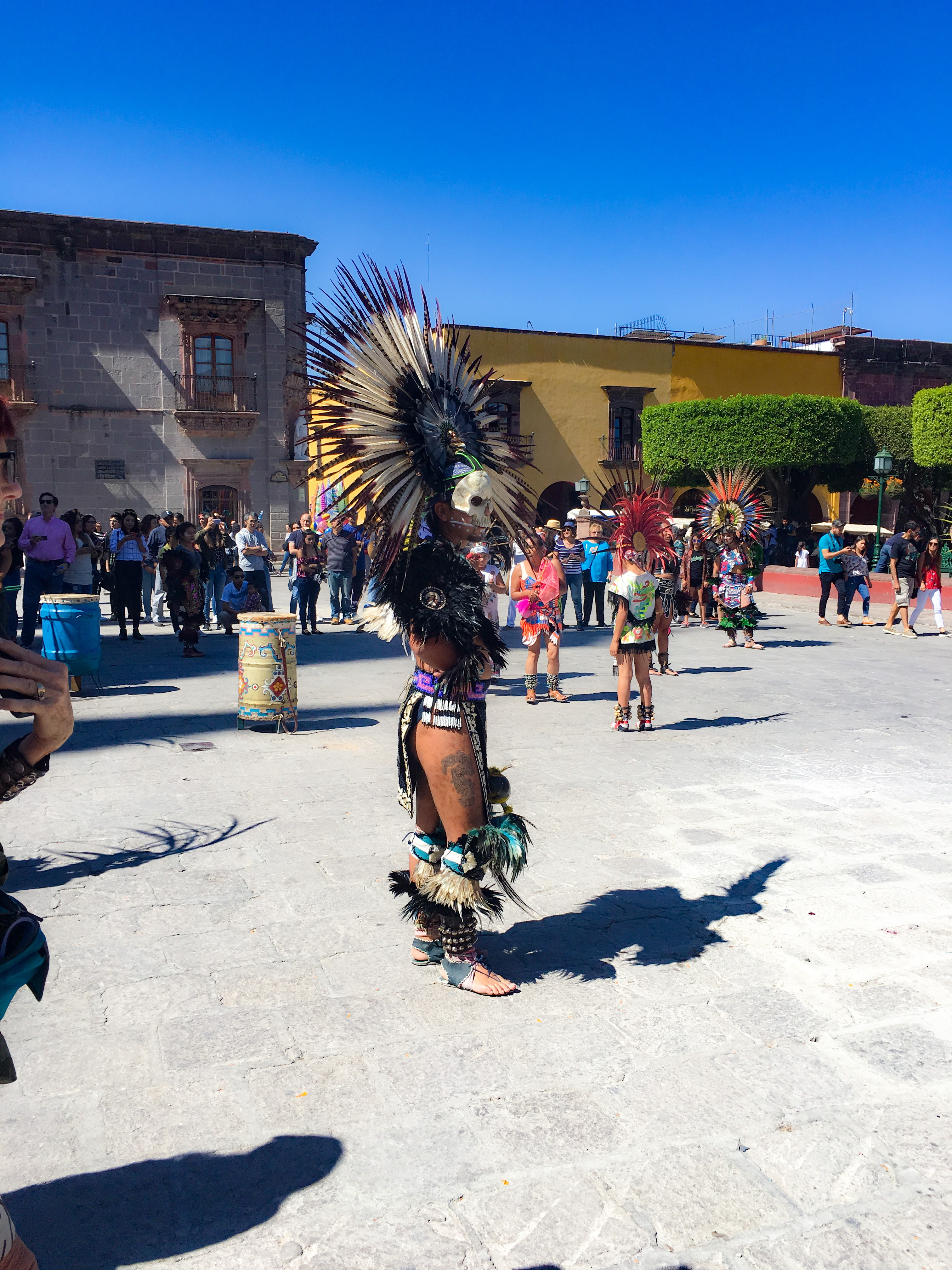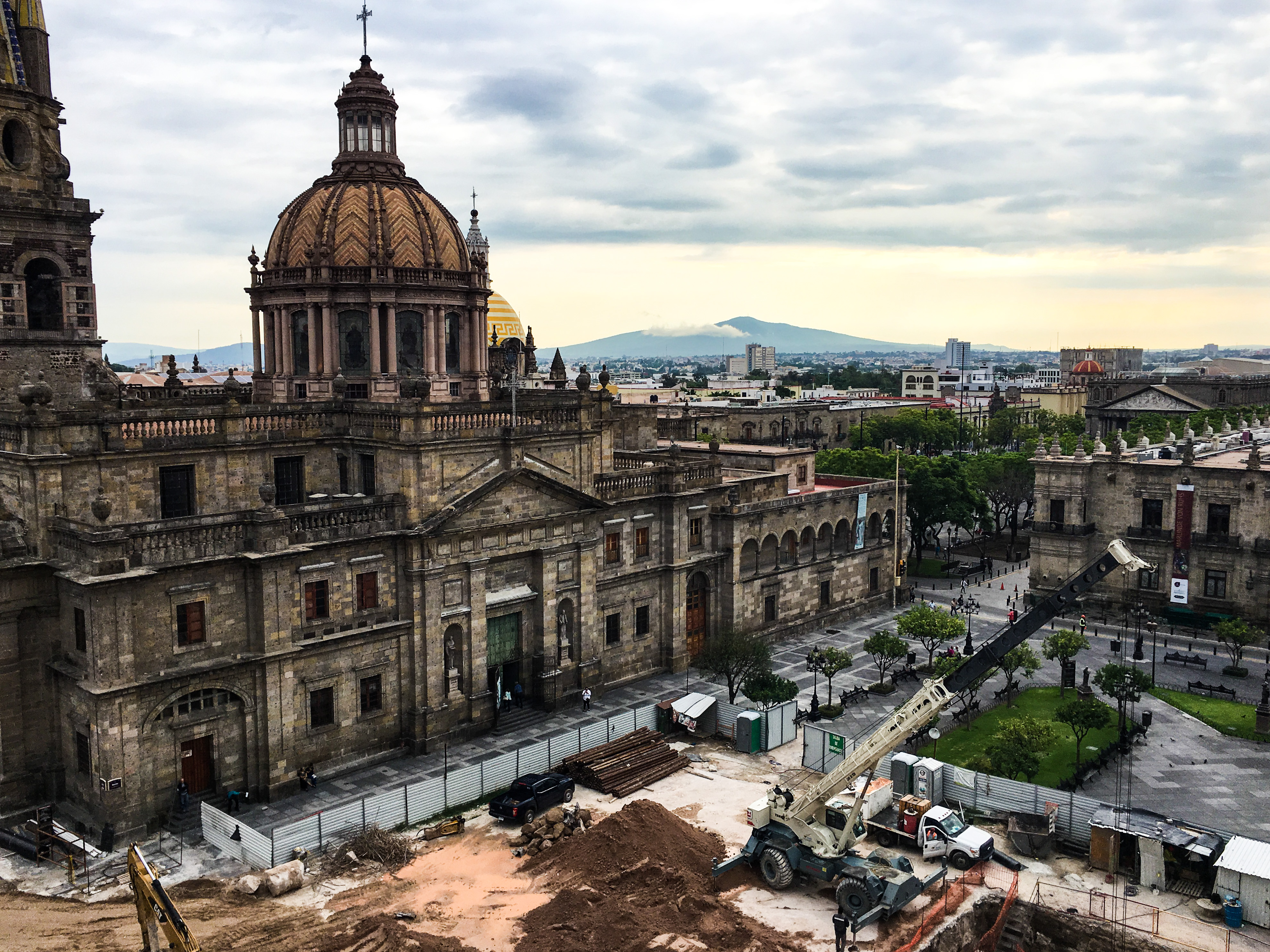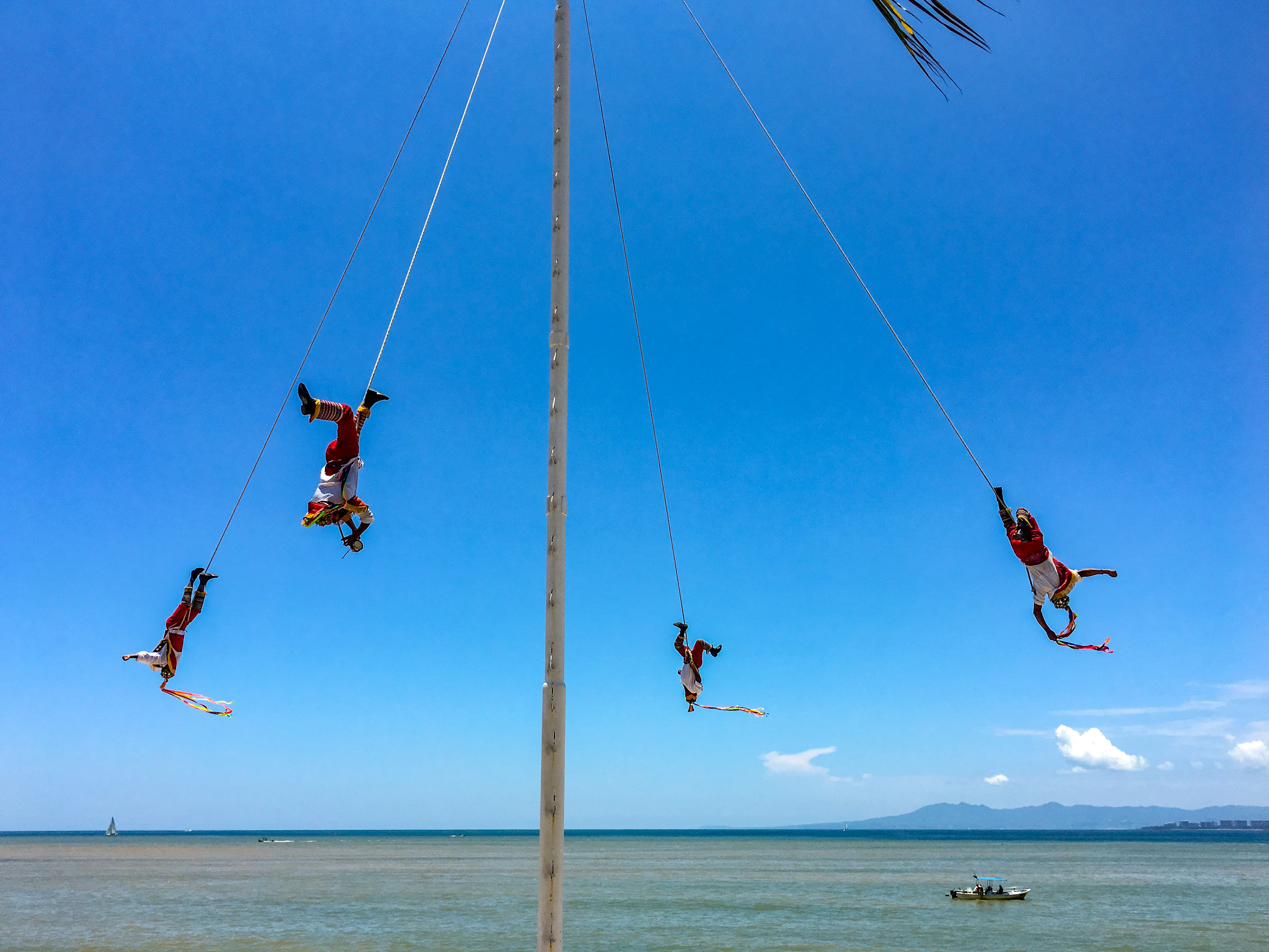Last Updated on May 7, 2021 by Natalie
So you’re thinking about becoming an expatriate somewhere. That’s awesome! It’s a big step just to wrap your head around the actualities of living somewhere other than where you were born. Here are some things to consider when becoming an expat somewhere!
Things to consider when becoming an expat with your family
For the purposes of this article, I am assuming that you are considering pursuing a job in your preferred country and are NOT looking for specific visa advice. Every country has different visa requirements. If you are planning to relocate for a temporary assignment within your current company, then the company will be pursuing the visas for you and your family. It is certainly much easier to pursue being an expat if you are able to move with your company.
My husband’s company has international offices and that is how we became expats in Mexico. While I hope to be able to do another assignment somewhere in the future, that isn’t guaranteed. Since I’m researching what life is like living in another country on the hopes we can live there, I am asking questions again. What questions should you ask when considering expat life? What do you need to consider when becoming an expat?
Read 5 Common Misconceptions About Being an Expat Family
Disclaimer
Blissmersion is a participant in the Amazon Services LLC Associates Program, an affiliate advertising program designed to provide a means for us to earn fees by linking to Amazon.com and affiliated sites. As an Amazon Associate I earn from qualifying purchases. Posts on this site might contain affiliate links. If you click them and make a purchase, I’ll receive a small commission.

Discuss it with your family
Obviously, you will, but this goes for those who don’t have children and a spouse to bring just as much as those with families. If your kids are old enough to have opinions about moving (ages 4 and up), you absolutely should include them in discussions about moving. Your spouse also needs to be on board with the plans.
When my husband and I were in the early stages of discussing moving to Mexico, he mentioned that some associates move to Mexico and leave their families in the US. At the time, my kids were 3 and 4. While it was certainly easier times than when they were newborn and 1 year of age, I couldn’t imagine parenting alone for three weeks at a time and then having my husband return for a week. That would’ve been a difficult way of life for us. Plus, it wouldn’t expose my children to different foods, language, and culture as I’d envisioned. We were all moving or I didn’t want my husband to accept the job.
However, extended family members also should know what you are considering because the idea can be shocking. In the USA, you can move around a huge country and see and experience many different things. For some people, living in a different country can take time to accept. Of course, for older relatives, that’s not the only consideration.
Will your family be able to visit you?
Older family members may not be able to easily travel anymore. My parents are in their late seventies and early eighties. Traveling is really difficult for them and they have been unable to visit us in Mexico. My sister’s family is big and traveling abroad is just a little too expensive to comfortably consider. I knew this would be the case. The burden of traveling is on us. We have been lucky because for the first three years of our assignment, all of our family lived in the same state. My sister and my in laws both lived in the same general area. Visiting home was actually easy, fun, and we would house sit at my sister’s for a week in the summer, saving us some cash on a hotel.
Things change, though. Now, my sister lives in a different state and is an 8 hour drive from my parents. Luckily, the parental units for both me and my husband do remain in the same state. In this case, I do expect my sister to bring her family to me, since I’ve already done the bulk of the traveling. It’s not as simple or easy as it was, but we are making it work.
Sometimes, the expense to visit you may be too much. Your family members aren’t the ones making the big move, so you have to consider they won’t want to visit you or won’t be able to swing it financially.
Additionally, none of my friends have visited me in Mexico. Again, it wasn’t unexpected. Initially, we were living in a city that wasn’t particularly picturesque (but we had a huge house). Now, we live in a house with a lot to do but our house is a lot smaller.
Are you considering moving to Mexico? Check out this incredible resource for expats moving to Mexico, Moving to Merida by Cassie Pearse! Much of the information is applicable to moving to any part of the country. I absolutely recommend reading this before your move to Mexico!

Performers in the centro of San Miguel de Allende, Mexico.
What will I do if there is an emergency back home?
If you are moving with a company, they may have a contingency plan of some sort if you have a death in the family or other medical emergency.
It is worth considering the question, do I have the means to return home quickly if a family member fall ill or there is a death in the family? My grandmother died a few months after we moved to Mexico. I wasn’t super close with her, but it still rocked me. However, we didn’t fly home for her funeral because my father told me that my grandmother wouldn’t have wanted me to spend the money. It’s true. She was an incredibly frugal woman.
Funerals are for the comfort of the living, to honor our loved ones’ lives. I was able to “attend” the funeral via video chat ( yay, technology!) on my sister’s phone. It wasn’t perfect and I did miss not seeing my extended family in person, but I’m glad that technology is such that I could “be there” even though it wasn’t in person.
Read Things You Need to Know Before Coming an Expat
Country and Culture questions
How will I adapt to my new country?
Some countries have a lot in common and it seems like it won’t be a big deal to adapt. Other countries are clearly very different from your home country and you will expect it to be difficult initially. Even if the countries share a lot of commonalities, the differences may still come as a huge shock. The opposite is also true. If are expecting a big change, you may instead notice the similarities.
I knew Mexico would be different from the USA. I’d never visited before deciding to move there and I really didn’t know what to expect. Especially since we were moving to central Mexico and not coastal Mexico, the latter of which is far more well known in the US. My husband’s company required that he visit before accepting his position, since much of what the US knows about Mexico is all the bad stuff that the news reports. His company was willing to send both of us, but weren’t able to let us bring our children at that time (even if we paid for them). So, I stayed home with the kids because I was then and am now unwilling to travel to another country without them. I also didn’t have an option for somewhere for them to stay while we went abroad. My husband had to make the judgement call about life in Mexico. He made the right judgement call.
While I absolutely do love living in Mexico, I had moments where I cried in the mall over something stupid. I’ve had times that we have been scammed. We’ve had some moments where we’ve ended up in some sketchy locations that made us feel a little nervous. Or a lot nervous. Those times are few and far between, thankfully.

A church in Guadalajara, Mexico.
How will I adapt to my new culture?
There can be obvious and glaring differences between cultures. Though Mexico and the USA share a border, there are so many cultural differences. The great thing about cultural differences is that they aren’t necessarily good or bad, just different. Luckily for humans, we are adaptable. Some of us may struggle more than others, but know that struggling is okay. It doesn’t make you a bad person to have difficulties adapting to differences.
One thing that our company does is provide us with a relocation specialist. What our relocation specialists do first are to help us find housing. In fact, our house hunting trip was spent with one the entire week. She took us to see houses in both Celaya, Guanajuato and Queretaro. At the time, we could choose where to live. We found a lovely home in Celaya and lived there for three years. It became less safe and the company asked all the expats to move to Queretaro for safety reasons. Our relocation specialists again helped us to find a school, home, and everything else you need to find when you move between states. Additionally, our relocation specialists help us with the random things we need. Just since moving to Queretaro, I’ve had to have the plumber here several times. Our specialists have worked with our landlord to have a leak in our wall fixed. I’ve called on her for help with having our dining chairs fixed and reupholstered. We’ve even been able to have our couch stitched up so that it will last the next year that we will be here.
The relocation specialists also help with translating under circumstances that may be out of our depth, like medical appointments. Not all companies offer quite as much help as we have. If you’re moving on your own, you may initially need this kind of assistance, too.
Read As An Expat I’ve Made Many Mistakes (and That’s Okay!)
Will I learn my new country’s language?
After being an expat in Mexico for four years, I know that it isn’t that easy to learn another language. I was so down during the isolation of 2020, that though I kept up my Spanish classes, I wasn’t able to practice much. Nor could I motivate myself to keep trying. Though I can get by in many circumstances, I don’t feel at all fluent. Yes, I’m absolutely embarrassed that I don’t speak Spanish better at this point. I have so much respect for people who speak a second language. Also, I’m certainly impressed by those who have spent time in the US and speak English without the benefit of having classes.
I do recommend starting classes before moving. I was not able to do this due to the fast time frame between my husband being offered the job and the moving date. We had 4-5 months and had a lot of work to do to get our house ready to sell and our possessions moved. My kids were younger and needed a lot of care and attention, too. I started using Duolingo. However, at the time, I felt that the beginner program was a little difficult. Since then, I have noticed the beginner levels are much easier. Even starting to watch TV and listen to music in your target language helps your ear become attune to the cadence and pronunciations.
Just doing small things daily can make a big difference. If you’re going to be a stay-at-home parent, it is likely going to be the fastest way to fluency. It definitely depends on your learning style and personality, too. There are plenty of options. I currently take classes and sometimes practice on Duolingo. I love a lot of Spanish language popular music, too.

A beautiful, pink church in San Miguel.
Can you accept yourself if you struggle with the language?
When I moved to Mexico, I was arrogant enough to believe that I’d have no trouble becoming fluent in Spanish within two years. Initially, I learned really fast and could retain it because I was using what I was learning immediately. However, I’ve always struggled with being able to understand. I can say a lot of things, but understanding eludes me. Sometimes, I can catch things solely because of context and catching a few words. I’m not as comfortable with Spanish as I had hoped to be. It took a long time to become okay with this. I spent two years beating myself up because of this flaw.
I’d hoped to find a short immersion program once we’d moved to Queretaro, but we moved in late February of 2020 and everything was shut down. That idea was put on the back burner and due to the continued restrictions (and my kids being home all the time), it continues to simmer. In the meantime, I talk when I can and continue with my language lessons.
My company does pay for my language lessons, though I’d absolutely budget for this if they didn’t. I think it’s important to keep trying to learn the language of my temporary country. I’ve had to accept that I may not be fluent and figure out how to be okay with that huge, massive flaw.
Read When Culture Shock Sends You Running for Cover
What about your child’s schooling?
When we moved to Mexico, I had planned to homeschool my kids. This was the plan in the US and I didn’t want to change that for Mexico. While I still think homeschooling is absolutely a viable (and legal) option in Mexico, I ended up choosing to send them to school for a few reasons.
One of the most important things for moving to Mexico was that I wanted my children to be able to speak Spanish. I found that we weren’t getting enough exposure to Mexican kids without school. My daughter was a bit of a novelty, with bright blonde hair at 4 years old. In our neighborhood, there were groups of girls who loved to play with her, but they also loved to speak English with her. It was really quite lovely. The kids just weren’t able to develop the friendships I’d hoped they have without some regular connections to local kids. We had expat friends, but that still had a few problems. First, the expat kids spoke English together. Of course! Second, the kids were all different ages which is awesome, but some of the huge age differences weren’t going to result in long lasting friendships anyway. Third, all of the expats were returning to the US one year into our assignment.
While I really liked the school I sent them for kindergarten, they had homework which I didn’t like. However, they learned Spanish, made lasting friendships, AND we got exposure to the culture in a way that I hadn’t expected. We were invited to participate in Mexican Independence Day, Day of the Dead festivities, Children’s day, and more. We were included in birthday parties and other events, too. Though I’d been so conflicted about sending them to school, I no longer regret that choice for having the opportunity to meet such wonderful families.
With the craziness of 2020, all schools in Mexico closed and went to online learning. The public schools were broadcasting lessons on the TV for their students. Our school did a nice job, but I still had to hire a tutor. When she received a job offer that would further her career, I did seriously consider homeschooling. This is what we will do when we return to the US, but I didn’t know what I would do if we attempted it in Mexico. Plus, I was really happy with our school – no uniforms and no homework! I ended up finding a bubble school (sometimes called a “pod school” in the US. One teacher with maybe 5 students). This is how we plan to spend the remainder of the year. The bonus is that my kids are again being exposed to Spanish and their vocabularies continue to grow.
There are going to be more and more options for online schools, plus there will be local options that can be considered. Make sure homeschooling is legal in your country of choice, if you are interested in that option, too. Our current city does have homeschoolers and homeschooling groups. Had we chosen Queretaro instead of Celaya, I may have gone that route instead.
Read Things I’ve Learned from 2 Years of Traveling, Being an Expat, and Blogging
Can I get (insert specific product here)?
Somehow, I learned that it would likely be difficult to get shoes in my size in Mexico. Heck, it can be difficult to get shoes in my size off the rack in the USA, too! Knowing this in advance was good. I ended up buying 4-6 extra pairs of shoes to get me through. Additionally, I will usually buy one or two pairs of shoes during each visit. I haven’t ordered shoes through trusty old Amazon in Mexico yet, but they are available (with an importation fee). You may not be able to find everything you want or are used to, but you will likely be able to find many of the things you want.
Every country will have different things available. If you can’t find something, you may be able to order it or a version of it from various online companies, too. Of course, there will be things you’ll have to go without.
How will I make friends in my new country?
This is an important question, especially if you won’t be working in your new country. As the non-working spouse, I had to find other ways to make friends. In our case, we happened to pick a neighborhood that had 3 other expat families, all from the same company. Additionally, there were two families (also from the same company) close by. This helped me exponentially, because I was dropped into a ready made community. It wasn’t what I’d expected or thought that I wanted, but it eased our transition considerably. When I moved from Celaya to Queretaro, I really didn’t know anyone. Moving during 2020 made it largely impossible for me to find friends. My kids have been able to find friendships in our neighborhood, which has been incredibly helpful.
Even after being here for a year, I’ve also not been able to be really outgoing. I still haven’t met that many people. Believe it or not, I’m okay with it overall. I do wish things are different, but they aren’t. My kids have friends and that’s enough for now.
I don’t want to make friends with expats, only locals!
Getting to know other expats isn’t a bad or wrong choice. In fact, before you go, getting hooked up with online expat groups can be incredibly helpful for answering specific questions. Some groups are established enough that you can search the group for answers to your specific questions and you’ll probably find them.
The other truth is that expats move on. Life as an expatriate is temporary. It just happened that all of the expat families had their assignments end a year after we arrived. Luckily, by then, we had local friends and a thriving social life. I have some friends who don’t speak English. I also have some friends who are from countries other than the US. I’ve made close friends with Australians, Brits, Indian-Canadians, and Japanese… and that’s only who I’ve met while living in Mexico!
If you’re open to your experiences and at least a little outgoing, you’ll find people with whom you click.
Know your new country’s climate
As a resident of Mexico, I am better acquainted with the varying climates of the country than I was before I moved. Luckily, someone told me that it does get cold in central Mexico. No, it doesn’t get as cold as Ohio does in the winter, but the temperature can dip into the low 30s during December and January. Yes, in Mexico! There are even areas in the north that see occasional snow.
Houses in Mexico are built with cement and bricks. There isn’t any insulation because mostly, it isn’t needed. The floors are usually tile and occasionally, you’ll see a laminate flooring. To date, I have never, ever seen a home here with carpeting. Candidly, I wouldn’t want it in this climate for several reasons. Our house in Celaya was actually really cold in the wintertime. Without central heat, it probably maintained a similar temperature to what I kept my house at in Ohio (66-68° F). Which means that indoors, I was wearing sweatshirts over t-shirts with jeans. Sometimes, I’d have to wear a blanket inside my house. Sure, outside might be 75° F, but the house isn’t soaking up as much sun in the winter and remains chilly.
Additionally, if you are going to spend time outside in the winter, you will want to have some winter clothing options. Jeans, long sleeved t-shirts, sweaters, and sweatshirts. I did bring my winter coat because I knew I’d be in Ohio for Christmas, but I do occasionally use it during the winter in Mexico, too. However, in the tropical areas of Mexico, you won’t likely need much heavy clothing. It’s hotter and more humid.

The entry way of my beautiful house in Celaya.
Housing concerns and climate
Different areas of Mexico will also have different concerns. In Queretaro, the rainy season last approximately 4 months and it doesn’t rain every day. If you have a leak, it really isn’t that big of a deal. Sure, it needs to get fixed, but it isn’t likely you’d have the negative problems that would cause in a climate like Ohio’s. However, in places like Merida, you do need a house without leaks. You also definitely want to have air conditioning units because the temperatures reach 100° F regularly in the summer and it’s always humid.
Both of the climate-related planning issues can be helped by being in an expat group specifically for that area.
What questions should I ask before moving?
One question I asked other expats before our move was “What do I need to know about living in Mexico that I wouldn’t know to ask?”
The answers varied. Someone told me that if you want something, buy it when you see it because it might be gone forever after that. I’ve found that to be somewhat true. One woman suggested to bring lamps, because she hadn’t been able to find any. I found this to be untrue and I see lamps everywhere. She was here several years ago and maybe then, she did have trouble finding much variety.
One of the best answers I’m going to provide for you for your expat journey, no matter which country you are considering. Your experience will not be the same as any other expat.
You can and should do as much research as you need to in order to make an informed decision on whether you think you can do it, what items to bring, and what to expect. Even with all the research and learning from others’ mistakes, you will have a different experience than anyone else.
Read our entire expat journey in Mexico!
Conclusion
Moving abroad is a big decision to make and should you choose to undertake it, a very rewarding one. Everyone’s experiences are different and everything can change from year to year. My life has changed every year I’ve lived here, with the biggest change being when I moved to a different city. I’ve cried in the middle of a mall. I’ve had incredible highs and super low lows. I’ve had several steady chunks of complete contentedness. I’m firmly in camp “let’s move abroad” and I’m so glad we have done it.
Are you considering becoming an expat? What questions do you have? The best feedback comes from readers. Please leave a comment. Thanks!


